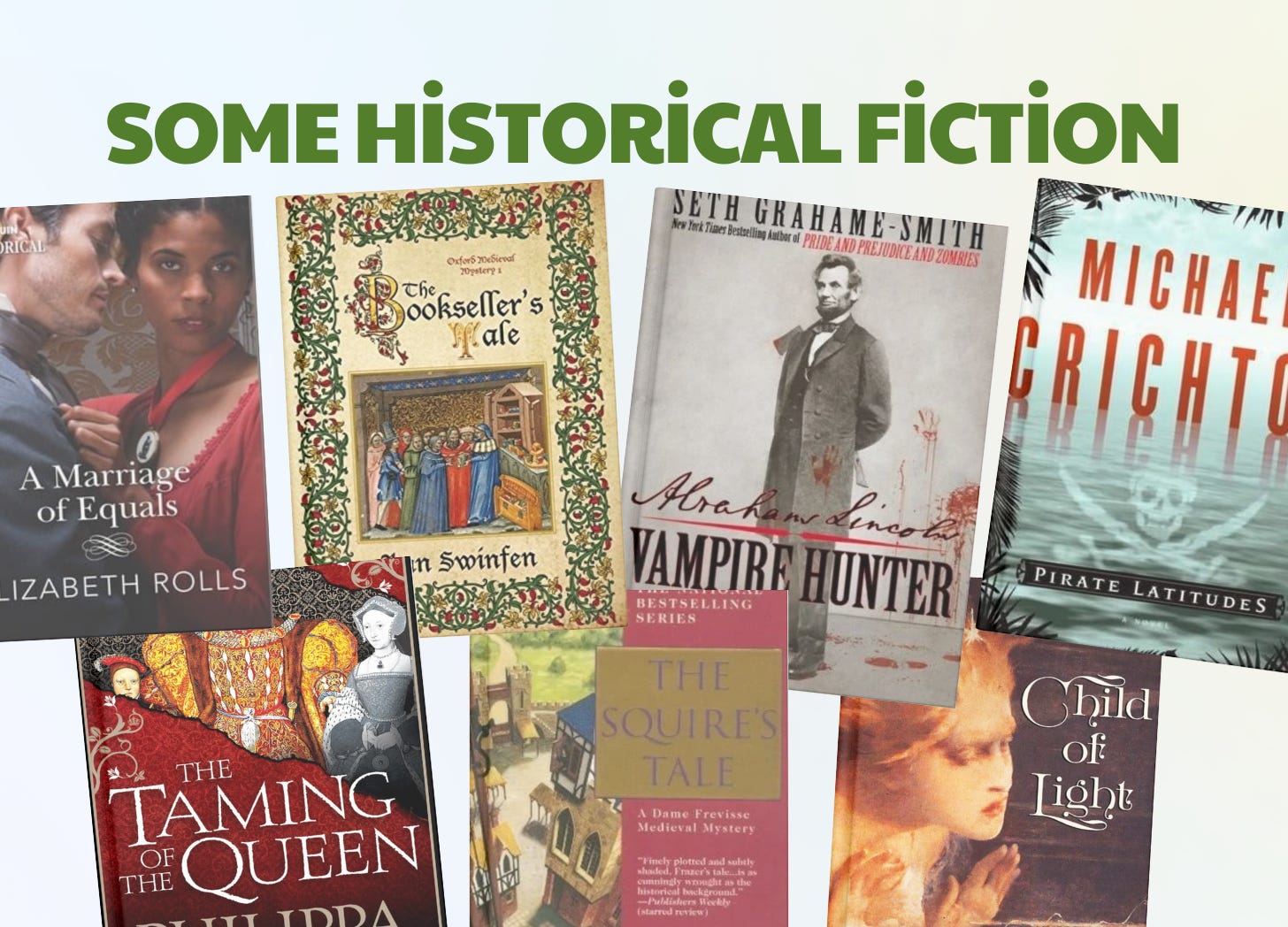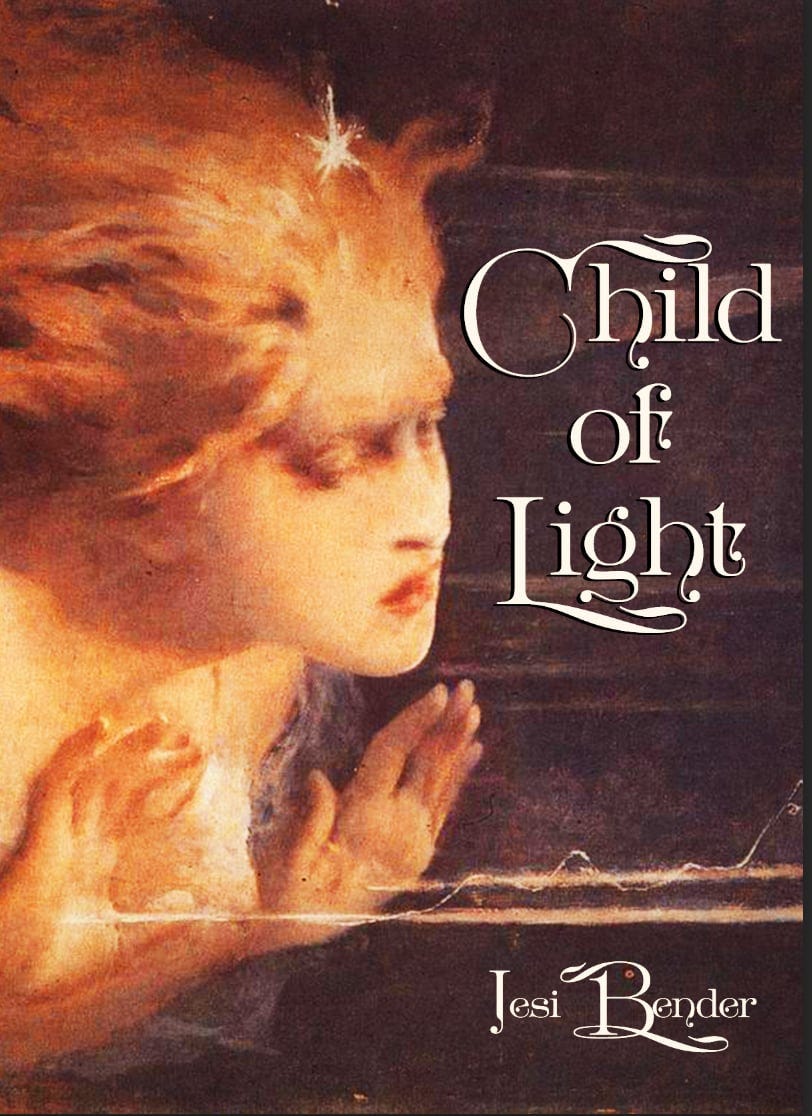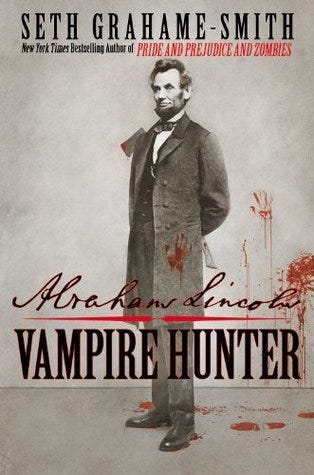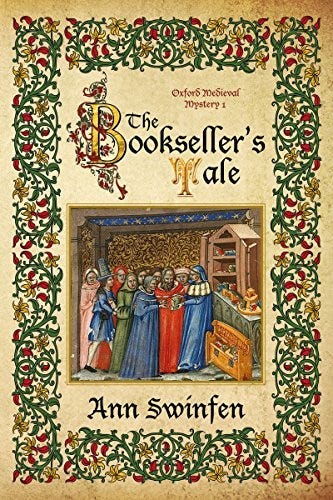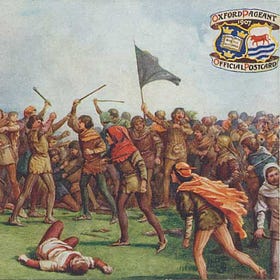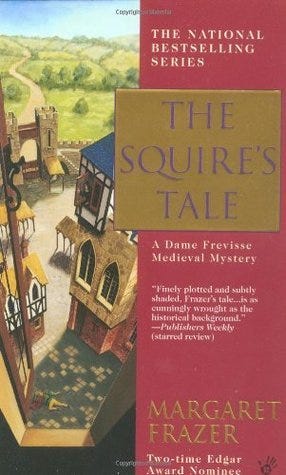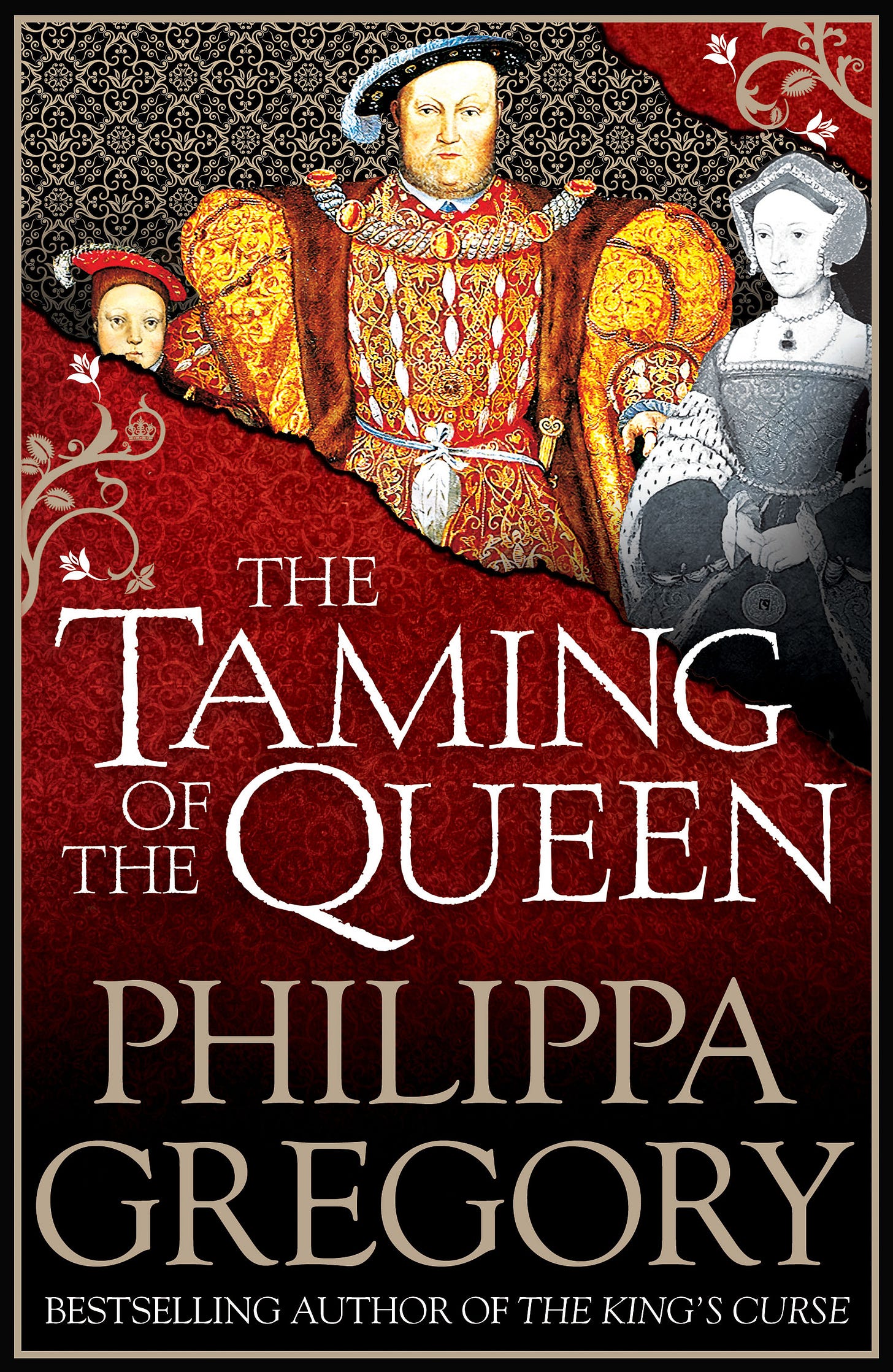Book Review: Some Historical Fiction I've Been Reading
From 14th century crime to 19th century vampires, there's something for everyone in here
Hi friends,
I have been meaning to keep up with reviewing books as soon as I’m finished reading them, but I’ve been reading so much historical fiction lately, those reviews would be all I'd post anymore! So, instead, here is a round-up of several novels I’ve read recently. If you like historical fiction, there’s something for everyone in here.
Don’t forget—this Saturday is Independent Bookstore Day! Support local bookstores by shopping locally this weekend. If you can’t get out to your local bookstore, shop online at Bookshop.org. They are a B-Corp and support local bookstores through profit sharing—over 80% of their profits go to local bookstores!
Child of Light by Jesi Bender
Release date: August 12, 2025
This experimental fiction narrative is set in the northeast US as electricity becomes accessible to the average American. It follows thirteen-year-old Ambrétte Memenon as she tries to reconcile the opposite poles of her estranged family—her distant father, obsessed with electricity; her angry mother, obsessed with Spiritualism; her dangerous brother, obsessed with becoming a man. Ambrétte is an innocent trapped in a cruel world, and my heart was repeatedly broken for her as she gets pulled further into the abyss of the adult world.
This is a dark novel, not suitable for young or sensitive readers. But it’s exquisitely rendered and a moving depiction of a changing world.
I was gifted this book by Whisk(e)y Tit in exchange for an honest review. Want me to review your book? Shoot me an email!
Abraham Lincoln: Vampire Hunter by Seth Grahame-Smith
I listened to this one on audiobook in January, which was the perfect way to consume it. Grahame-Smith has created a fantasy alt-history where vampires stalked the early nation and were a key issue in the Civil War. He slides their presence pretty seamlessly into real history: Vampires support the American South and the enslavement of Black Americans in order to have easy access to their food. Lincoln begins a lifelong dedication to eradicating vampires afterhis mother and then an early love are both murdered that culminates in the Emancipation Proclamation and a war on the horrors that stalk our nightmares.
The Bookseller’s Tale and the whole Oxford Medieval Mysteries Series by Ann Swinfen
Set in Oxford, England in the mid-1350s, this series follows a handsome young bookmaker, Nicolas Elyot, as he investigates crimes occuring in and around their small town. His work is set against the backdrop of England recovering from the devastation of the Black Plague—crime is rising, society is transforming. Swinfen’s series of six novels follows Elyot and his friends solving various kinds of crimes while exploring the realities of Medieval England. He befriends several intelligent female entrepreneurs, deals with the fallout from the Hundred Years’ War, and navigates complicated social relationships between the city and the university.
Bonus Episode 16: The St. Scholastica Day Riot
A look at the riots that occurred when town and gown clashed in Medieval Oxford.
I love how Swinfen renders Medieval England. The 14th-century setting is a fun twist on the classic detective story. How Elyot and members of the university solve crimes without the science underlying forensics from the 19th century onward is a cool microcosm of this time period.
The Squire’s Tale and the Dame Frevisse Mysteries series by Margaret Frazer
Set about 100 years later, Margaret Frazer’s series sets up a nun as the detective. In this particular tale, Dame Frevisse leaves her nunnery and gets caught up in a violent love triangle that ends in the mysterious death of an arrogant and spoiled squire. What she and Nicholas Elyot (the narrator of the Oxford novels) have in common is that they’re both well-educated, setting them up as the only people who can use logic when the crimes are committed. This series has the added twist of the nun-investigator, so people have preconceived notions about Dame Frevisse.
Just like Swinfen, I love the way Frazer sets up Late Medieval England. It’s set right at the end of the Hundred Years’ War, and you can feel the tension of that throughout the novel. Both series also make references to Geoffrey Chaucher’s collection The Canterbury Tales in their titles, which is fun. This particular novel is the 10th in the series, which I picked up by accident, and now I’m making my way through the other 16 novels and 4 short stories in the series.
I know, I know, I hate to link to Amazon, especially write before Indie Bookstore Day! But this one isn’t available on Bookshop. That said, other books in the series are.
The Taming of the Queen by Philippa Gregory
If you’re interested in Henry VIII and Tudor royalty, you’re going to love Philippa Gregory’s Plantagenet and Tudor Series, of which this is novel number 12. I’ve been reading this series since high school, and it’s one I’m constantly coming back to. I love the way Gregory tells these tales from the points of view of the women of the Plantagent and Tudor families.
This novel in particular is about the final wife of Henry VIII—Kateryn Parr. A deeply fascinating figure, this novel told from her POV nearly renders her into a proto-feminist, an activist for both women and Protestantism. It’s doesn’t go as far and it’s not as deeply rebellious as Firebrand was (which, of course, is about the same woman) but it’s far more historically accurate than the movie.
You can start Gregory’s series at book #1, The Lady of the Rivers, but you don’t need to. In fact, the series has been published completely out of order—the first book published in the series, The Other Boleyn Girl, was published in 2001 but is now book #9. The final book in the series, The Other Queen, (currently numbered 16) came out in 2008. The forthcoming book in the series, The Boleyn Traitor, will be book #11. See what I mean? Each book covers the life of one Plantagenet or Tudor woman, so start with whichever you are most interested in.
A Marriage of Equals by Elizabeth Rolls
If you like your historical fiction with a large helping of romance, A Marriage of Equals is as good as it gets. I’m not a big romance reader, so I don’t know what compelled me to check this one out of the library, but I ended up really enjoying it. Psyché Winthrop-Abeni is so cool, opening a coffee shop in the heart of London after being saved from enslavement in Jamaica by her father. Her cinnamon roll love interest, Will Barclay, is actually an interesting character, a rulebreaker in his own ways. It would have been so easy for his whole personality to be that he believes in equality between the sexes and the races, which was a big deal, but he has more than just that to him.
From what I know of Regency England, the microaggressions—and outright aggressions—that Psyché Winthrop-Abeni faces throughout the novel as a Black woman in London are accurate to the time. Her story is inspired by the life of Dido Elizabeth Belle, a woman born to an enslaved Jamaican woman and a white British naval officer. Definitely worth both reading this novel and watching Belle.
Pirate Latitudes by Michael Crichton
And finally, to get away from England, a book in one of my favorite genres: Pirates! This one follows a fictional pirate captain—possibly based on the pirate Henry Morgan—as he sails from Port Royal and infiltrates a Spanish stronghold in the Caribbean in order to rob their treasure ships. This is apparently based on a real event, though I haven’t seen anyone stridently defending it’s historicity. Regardless, the novel is non-stop adventure, and great for settling into summer.
And that’s all…for now. I have some more reviews coming soon, as well as some more podcast episodes! Please let me know if you check any of these books out! I’d love to hear your thoughts. And if you have any book recommendations, please drop them in the comments.





